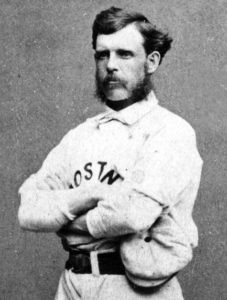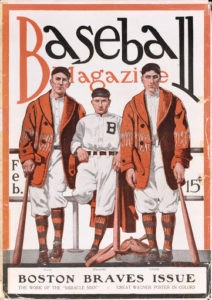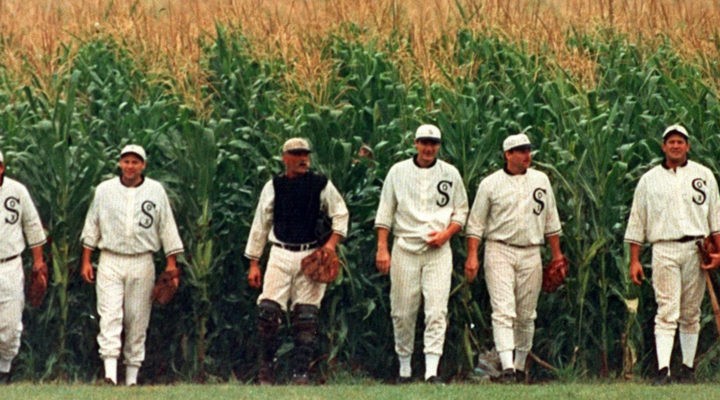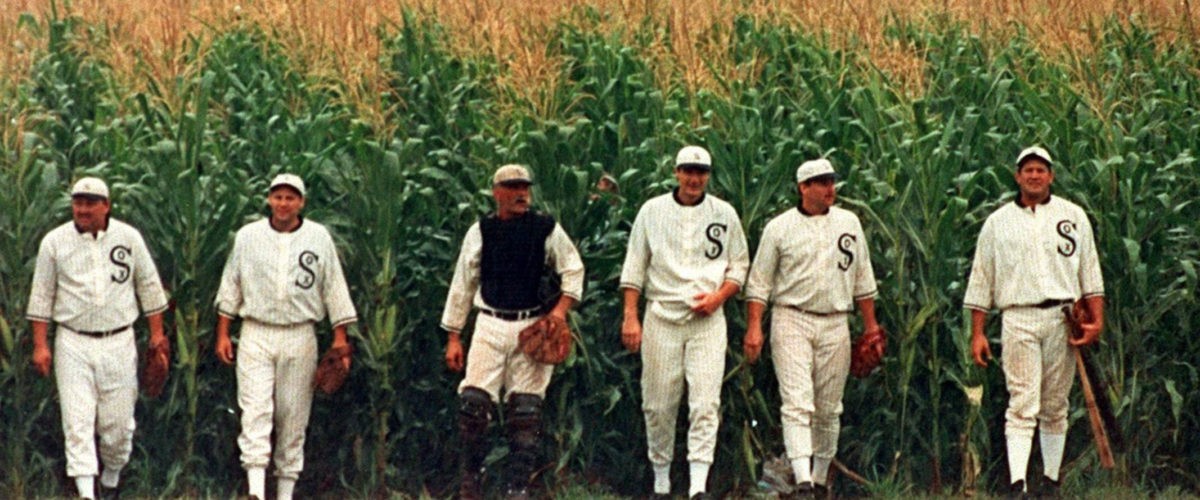The voice of James Earl Jones — as Terrance Mann in The Field of Dreams — touches a nerve of spirit for millions of baseball fans.
Since 1989 the words nearly have become sacred: “The one constant through all the years, Ray, has been baseball. America has rolled by like an army of steamrollers. It has been erased like a blackboard, rebuilt and erased again. But baseball has marked the time. This field, this game: it’s a part of our past, Ray. It reminds us of all that once was good, and it could be again.”
“All that once was good, and it could be again” is a confession of faith that echoes through many layers of sacred history. We humans know about failure and the loss of hope, but we also harbor primal memories, often cast in poignant myths, legends and revised history that keep hope alive.

Members of the Atlanta Braves celebrate after their World Series Parade at Truist Park on Nov. 5, 2021 in Atlanta. The Atlanta Braves won the World Series in six games against the Houston Astros winning their first championship since 1995. (Photo by Megan Varner/Getty Images)
The 2021 Atlanta Braves were a franchise with callused elbows after nearly three decades of leaning on the sill of the window of hope. Their last to first season in 1991 went to the seventh game of the World Series with one of most competitive pitching duels in baseball history. John Smoltz took the ball for the Braves after a strong postseason. The Twins’ Jack Morris pitched 10 strong innings to win the final game and earn the MVP.
The 1992 emerging Braves were defeated in the World Series when Toronto’s Cito Gaston became the first African American to manage a World Series victor. It also was the first time a non-North American team would hoist the Commissioner’s Trophy. (Toronto would repeat the next year with a Joe Carter game-winning home run.)
Those elbow calluses got thicker — and continued to for many years. Leaning on the sill of the window of hope will do that.
From 1991 until 2005, the Atlanta Braves were the Eastern Division Champions of the National League.
Only in 1995 did the Atlanta Braves raise the window of hope when they celebrated a victory over the hapless Cleveland Indians, who have been resting their elbows on the sill of the window of hope since 1948. (Cleveland’s 1948 World Series victory was against the Boston Braves.)
In the intervening years, the Braves kept hope alive. That is what Terrance Mann was acknowledging when he said, “All that once was good, and it could be again.” Keeping hope alive is the core of the many layers of sacred history.

Harry Wright
The Braves franchise history is the oldest continuous professional baseball team in the United States, stretching back to 1870 when the Boston Red Stockings were formed by Harry Wright. Wright is cited as the father of professional baseball. He put together the Cincinnati Red Stockings, a legendary team that was the first juggernaut in professional baseball, including an undefeated season in 1869, 57-0. When the Cincinnati Red Stockings fell on financial hard times and chose to leave the ranks of professional baseball, Harry Wright moved the team to Boston and retained the Red Stockings name.
From 1871 until 1952 the Braves were a Boston team. In 1953, the Milwaukee Braves took the field. In 1966, the Braves moved South to become the Atlanta Braves. In each city the Braves were victors in at least one World Series: 1914 (Boston), 1957 (Milwaukee), and 1995 and 2021 (Atlanta).
 The 1914 Boston Braves are called the Miracle Braves because of their halting early season — they were in last place on July 4 — and explosive finish. Apparently they found a way to keep hope alive. The Boston Braves were given scant hope to win the only World Series played during World War I. But they did, sweeping the series against Connie Mack’s Philadelphia Athletics.
The 1914 Boston Braves are called the Miracle Braves because of their halting early season — they were in last place on July 4 — and explosive finish. Apparently they found a way to keep hope alive. The Boston Braves were given scant hope to win the only World Series played during World War I. But they did, sweeping the series against Connie Mack’s Philadelphia Athletics.
The 2021 Atlanta Braves defeated injuries, slumps and the lingering threats of a pandemic that had disrupted the previous season. Never were they favorites according to the pundits and number crunchers. Even postseason commentators dwelt more upon why the Braves should not have won rather than how they won.
But they won. They kept hope alive.
As the late Commissioner of Baseball, Bart Giamatti, wrote of baseball, “It breaks your heart. It is designed to break your heart.”
Yes, but …
Sometimes it makes your heart sing as you raise the window of hope.
Richard Francis Wilson is the Columbus Roberts professor of theology in the Columbus Roberts Department of Religion and former chair of the department in Mercer University’s College of Liberal Arts and Sciences. He was president of the Liberia Baptist Theological Seminary near Monrovia from 2014 to 2016.
Related articles:
Why I wrote about hope in disarray | Opinion by Grace Ji-Sun Kim
In times like these: Love of hope and hope of love | Opinion by Kate Hanch
What I learned from RBG about the ‘dissenter’s hope’ | Opinion by Jordan Conley


